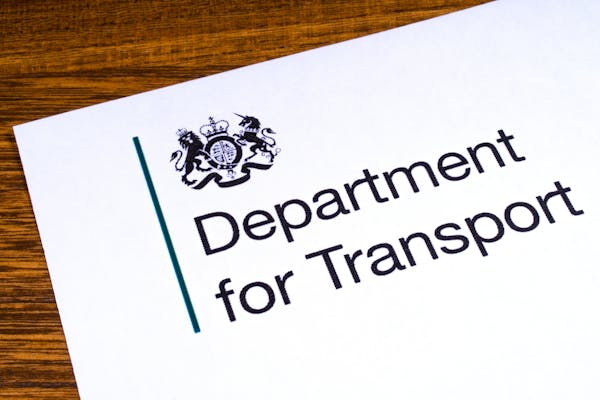UK Government announce changes to Zero Emission Vehicle (ZEV) mandate
In a move responding to this week’s US tariff announcements, the Department for Transport has adjusted its Zero Emission Vehicle (ZEV) mandate, offering more flexibility for car manufacturers.

Among the key changes are extended sales of hybrid cars and internal combustion engine (ICE) vans until 2035. But is this a positive step for the automotive industry, or a setback on the UK’s path to Net Zero? Let’s take a closer look.
The UK’s Zero Emission Vehicle (ZEV) mandate is a set of government regulations designed to boost the number of electric vehicles (EVs) on the road. It requires manufacturers to increase the percentage of zero-emission vehicles, such as electric cars, in their sales between 2024 and 2035, supporting the UK’s goal of reducing carbon emissions and transitioning to cleaner, greener transportation.
Key changes to the ZEV Mandate:
- Hybrid vehicle sales extended to 2035: Manufacturers will now be permitted to sell hybrid cars and vans until 2035.
- New vans with an internal combustion engine (ICE) can also be sold until 2035: This extension aims to allow for a more gradual transition to electric vehicles, accommodating both industry capabilities and consumer readiness.
- Additional flexibility for manufacturers:
The updated ZEV mandate keeps the key phase-out dates and targets in place. For example in 2025 28% of new car sales and 16% of vans must be zero emission. But there’s now more flexibility built in: manufacturers can shift more EV sales to later years, when demand is expected to be stronger. Giving them room to breathe while staying on track for 2030. - Exemptions for small manufacturers: Recognising the unique challenges faced by smaller carmakers, the government has exempted small volume manufacturers such as McLaren and Aston Martin from the stringent requirements of the ZEV mandate. This move seeks to support innovation and diversity within the automotive industry.
Industry reactions
The automotive industry has shown a mixed response to these changes. While some manufacturers appreciate the added flexibility, others express concerns about potential delays in achieving environmental goals. The government emphasises that these adjustments are designed to support the industry's transition without compromising the UK's commitment to reducing carbon emissions.
Implications for electric vehicle leasing
For consumers considering electric vehicle leasing, these changes may influence the availability and variety of hybrid and electric models in the coming years. The extended timeline for hybrid sales could mean a broader selection of vehicles to choose from, catering to diverse preferences and driving needs.
At DriveElectric, we remain committed to offering the latest and most environmentally and cost effective vehicle options. We will continue to monitor these developments closely to provide our customers with up-to-date information and a wide range of choices in the electric and hybrid vehicle market.
We understand the government’s decision to support certain carmakers as they transition their ranges to fully electric. We don’t see this announcement having a significant impact on EV adoption, especially with Benefit-in-Kind rates for hybrids set to increase by 2028.
How have the rules changes for vans?
New vans with an internal combustion engine (ICE) can also be sold until 2035: This extension aims to allow for a more gradual transition to electric vehicles, accommodating both industry capabilities and consumer readiness.
Annual ZEV targets for car and van sales:
2024 to 2035
Year |
2024 |
2025 |
2026 |
2027 |
2028 |
2029 |
|---|---|---|---|---|---|---|
Car sales target |
22% |
28% |
33% |
38% |
52% |
66% |
Van sales targets |
10% |
16% |
24% |
34% |
46% |
58% |
Year |
2030 |
2031 |
2032 |
2033 |
2034 |
2035 |
|---|---|---|---|---|---|---|
Car sales target |
80% |
84%* |
88%* |
92%* |
96%* |
100% |
Van sales targets |
70% |
76%* |
82%* |
88%* |
94%* |
100% |
How well is the ZEV mandate working so far?
2024 saw EVs accounting for 19.6% of new car sales. Missing the mark on last year's ZEV target of 22%
Despite falling 11% short of the 2024 ZEV target, at DriveElectric we are predicting a rise in EV sales in 2025. New ZEV mandate revisions will allow manufacturers to carry any sales shortfalls forward to future years & exempt smaller makers from the restrictions entirely.
2024 ZEV EV sales target 22%
19.6% actual EV sales
The recent adjustments to the UK's ZEV mandate reflect a pragmatic approach to the nation's ambitious environmental targets. By incorporating industry feedback and allowing for a more flexible transition, the government aims to balance economic considerations with the urgent need to reduce emissions. As the automotive landscape evolves, staying informed about these changes will be crucial for consumers and industry stakeholders alike.



